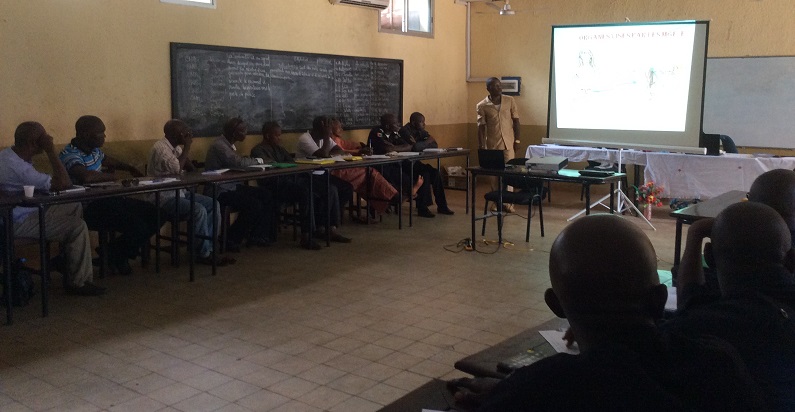-
25 June 2014
Category : Opinion
Support to the police of Guinea Conakry in the area of gender violence
According to the World Health Organization (WHO), there are currently 140 million women and girls in the world who have endured genital mutilation. It is also calculated that African females are the most vulnerable to the practice. Some 92 million girls and women over 10 years of age in Africa have been victims. Guinea Conakry is one of the African countries where it is most practised despite being considered illegal in the country since 1965. There, the FIIAPP is one of the managers of a project for increasing safety and awareness by the population. Elena González, who worked as a trainer in this project, brings us closer to this reality.

I didn’t know anything about the issue of genital mutilation beyond what I used to hear in brief news stories on television, and it was my short one-month stay in Guinea Conakry that opened my eyes to this harsh reality.
We went to Guinea—I say “we” because I went with a colleague—to participate in some workshops to raise awareness of violence against women. And it’s clear that when you talk about this type of violence in certain African countries, you have to mention female genital mutilation.
Curiously, the talk for raising awareness was given by an expert on the subject and, if I consider the statistics for this region, of the approximately 20 women attending the course, at least 19 must have been ablated. The reality is that in Guinea Conakry, the number two country for this phenomenon, 98% of the women have suffered some type of alteration of their genital organs.
And the strange thing was that among the students, rejection of these types of practices seemed notable. It took a Christian guy to clue me in to the reason for this apparent incongruence: “a woman who has not been ablated is exposed to rejection by a large part of society”. Traditions still carry great weight in this society.
The physical consequences for the women who are victims of these practices are incredible and range from all types of physical problems and difficulties when giving birth to psychological consequences that stay with them for the rest of their lives.
I didn’t want to delve into the topic with the students to avoid making them feel uncomfortable, but I couldn’t keep from asking one or two women outside that setting, and I was again surprised by the answers. I can’t say that this is significant, because I only spoke with two young women, both under 30, but neither of them was ablated. One in particular had two daughters, and she was clear that she wasn’t going to put them through this awful experience either.
It seems that part of the younger generation is starting to react against these types of practices, and we hope this is a general attitude that will reverse the statistics and allow this country to stop heading the list of countries where it is most practised.
The views and opinions expressed in this blog are the sole responsibility of the person who write them.




